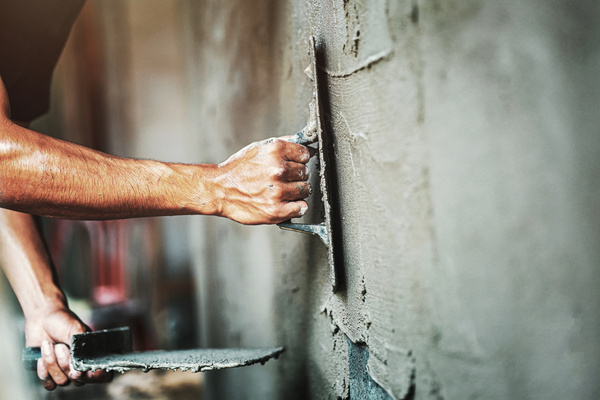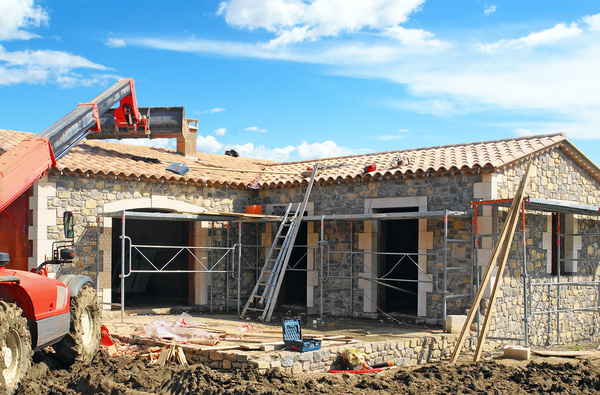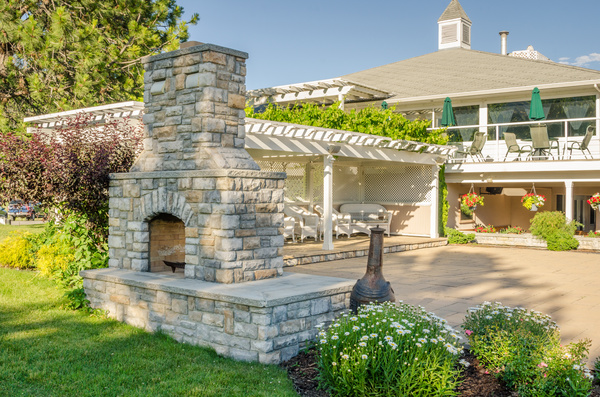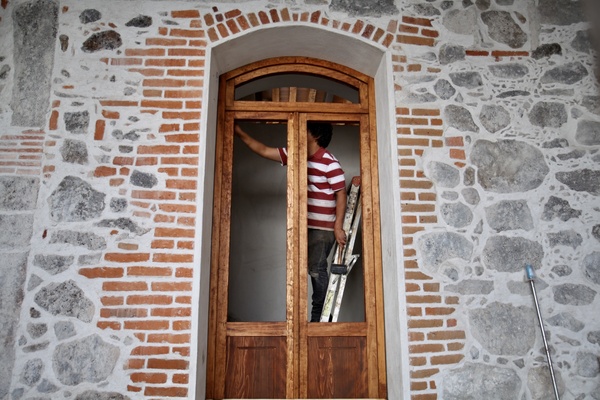
Crown replacement can cost anywhere from $300 to $3,000, depending on the size, style, and material used. Crown replacement should be performed by a professional, as it is critical to the structural integrity of your home. Crown replacement costs vary according to the amount of work needed, the material used, and the complexity of the project. A masonry contractor can repair or build a crown that is both functional and attractive.
A masonry contractor can build or repair a crown to prevent your chimney from leaking. Crowns are designed to cover the top surface of the masonry chimney and are usually built with 3 inches of thickness at the thickest point. The height of a crown must be angled slightly so that it extends above the chimney's masonry base. A quality cement is used to construct the crown, which is designed to withstand the elements. The average cost to repair a crown varies from about $60 to $3,000, depending on the type of material and the damage. The work is often more complex than simple crown repairs, and the type of material is also an important consideration in determining cost. The table below lists the most common materials and their repair prices. For a general idea of what you can expect to pay, you can consult an expert.
Any cracks in the masonry can be identified and sealed by a contractor. Cracks may also develop in the crown (the cement layer that covers the top and sides of the chimney). Cracked crowns may cause more damage. A masonry contractor will apply waterproof sealant to repair it. If you have severe cracks, a masonry contractor will need to rebuild your chimney. The cost of chimney crown repair is relatively affordable, but it can easily run over $1,000 if you require it.
Brick has long been a leader in construction, and it's durable and reliable. Brick can withstand high temperatures, so it's an excellent choice for outdoor kitchens. Moreover, brick won't burn or damage the kitchen itself when temperatures are high. A customer service representative can match the project to the homeowner's specifications. This way, a masonry contractor can deliver the outdoor kitchen of your dreams.
Safety is key to your home. If your chimney isn't ventilated properly, creosote can buildup over time. If your chimney hasn't been inspected recently, you should make an appointment. The inspection will let you know if there are any issues and can help you reduce the damage to the chimney.Although quality masonry may be strong and durable, cracks can occur and chimneys may deteriorate. Poorly applied mortar could lead to premature decay and deterioration. Additionally, moisture issues can lead to further damage to brickwork. Even if the chimney appears to be intact, it is possible that you will need to replace bricks or even replace the whole structure.
A masonry contractor may be able build or repair crowns to stop your chimney's leaking. Crowns are used to cover the top of masonry chimneys and are usually 3 inches thick at the thickest. The crown must be placed slightly higher than the chimney's foundation. For the crown to be strong, it is constructed with quality cement. The average cost of crown repairs ranges from $60 to $3,000 depending upon the type and extent of damage. Repairing a crown is usually more involved than simple repairs. It is also important to take into account the material being used. Below is a list containing the repair prices for some of the most common materials. An expert can give you a rough idea of the cost you can expect to spend.
Crown replacement can cost anywhere from $300 to $3,000, depending on the size, style, and material used. Crown replacement should be performed by a professional, as it is critical to the structural integrity of your home. Crown replacement costs vary according to the amount of work needed, the material used, and the complexity of the project. A masonry contractor can repair or build a crown that is both functional and attractive.
Pavers can be made from many materials and different colors. These pavers should be matched with the rest of your home. Cool colors should be used in contrast to warm colors. You can ask a masonry contractor for help if you have any questions about color selection. If you use these tips, choosing a paver for your next project should not be difficult. A masonry contractor has the tools and training necessary to do the job correctly.
An average brick crown repair cost is $350-$3,000, depending upon the damage. Filling a crack, or replacing a part are two of the most common repairs. Sometimes, the job will need complete replacement if there are missing or severe damage. If only one brick is replaced, Crown repair costs may be lower. Crown repair costs depend on the material used, how the construction was done, the initial cost and the work required.
Next, you must choose the best location for your fire pit. It should be placed in an open area, away from trees and bushes. To allow for comfortable seating, the fire pit should be at least 3 feet in diameter. A circle that can accommodate between 12 and 15 people should be allowed. A Masonry Contractor should be consulted if you are planning to build a permanent firepit.
You should verify the license before hiring a masonry contractor. The contractor should be licensed in your area by the Department of Consumer Affairs. They should also have general liability and workers' compensation insurance. You should also check for any certifications or licensing. This will save you from costly mistakes that can make the job less appealing. California's Contractors State License Board acts as the regulator for contractors. The board issues a C29 license to masonry contractors. Masonry contractors should be able identify concrete blocks, exterior elevations, as well as site works and must follow blueprints. Finally, they should be familiar both with lien releases as well as land use permits.

If you are unhappy with the installation of your pavers, you can hire an experienced masonry contractor to fix it or build new ones. This service can help you avoid costly mistakes that could jeopardize your investment. A better quality paver should be purchased if your pavers are chipped, cracked or fading. You should ensure that your pavers are color through to avoid cracking and fading.
Even though quality masonry is very durable, it can still crack and show signs of deterioration. Poorly applied mortar may lead to premature cracking and deterioration. Moisture issues can also be caused by poor mortar application, which can further cause brickwork damage. Even if your chimney isn’t cracked it could be necessary to replace individual bricks or the entire structure. A masonry contractor will provide a finished product to protect your chimney from any water damage over the years. They will be able clean your chimney's flues properly and apply liner to protect the chimney. Although DIY projects are tempting, you will be safer and more satisfied with your final product if the professional is involved.
The first step in laying your new pavers is to determine the pattern you want. A 90deg or 45deg herringbone pattern will usually work best. A herringbone pattern will withstand the maximum load and heavy stomping. The area surrounding your new pavers should be clear of any debris, as it can scratch the surface of the pavers. Jointing sand should be used properly to avoid any issues with bridging or settling. You can hire a masonry contractor to repair or build your pavers if you have a faulty installation. This service will help you avoid expensive mistakes that could endanger the integrity of your new investment. If your pavers are cracked, chipped or fading, you should invest in a better quality paver. Make sure that the pavers are colored through to prevent fading or cracking.
It is easy to make mistakes when working with thin brick veneers or real brick. Contractors and masons often don't know what type of mortar is being used. This makes it crucial to hire a professional Bricklayer. Here are some commonly used mortars to make brick veneer. The cost of brick veneer walls varies depending upon the size and time of the job. A basic 320 sq.ft. wall can cost between $3,300 and $5,100 in labor costs. ft. wall. The labor costs can range from $4,500 to $4,500, depending on the extent of the work required. Brick veneer's benefits include light weight and thermal efficiency. Brick veneer walls are a great way to lower your heating and cooling expenses if you install them correctly.
Brick crown repairs can run from $350-$3,000 depending on the extent of damage. The cheapest repairs include replacing or filling a hole. It may be necessary to replace the entire structure if it is severely damaged or has missing parts. Crown repair costs are likely to be lower when you only replace one brick. Crown repairs costs are generally determined by the material used, type of construction and amount of work required.
Before you hire a masonry contractor, you should know what your options are. This way, you can find out which services are most appropriate for your home. For example, you can ask for a brick veneer wall or crown repair. A masonry contractor can build or repair all these things. You can also hire a masonry contractor for chimney repair or a new brick fireplace. Depending on the project, you may need more than one service.
Next, the location for the fire pit must be carefully selected. Ideally, it should be placed in an open space, far away from bushes and trees. The size of the fire pit must be at least three feet in diameter to accommodate seating comfortably. The circle should be large enough to accommodate 12 to 15 people. If you decide to install a permanent fire pit, you should consult a Masonry Contractor for this purpose. A masonry contractor can perform various types of masonry work, including restoration and repair. Restoration services include replacing worn-out masonry materials with new ones that match the original materials. Masonry restoration is particularly important for older historical buildings, as the masonry deteriorates over time and must be repaired to maintain its structural integrity and appearance. Similarly, masonry repair services include repointing old walls and replacing cracked mortar and bricks.
The heart of your house is the chimney. If your chimney isn't properly maintained, it can cause costly damage to your home's walls, ceilings and floors. Cracks in the chimney's mortar are the main source of water damage. Even a single crack can spread and cause severe damage. Masonry Contractors can help you find the best solution if your chimney needs repairs.
You can use brick and stone in both residential and commercial buildings. These materials come with varying properties and should always be checked by a licensed masonry contractor before being used. It is possible for small problems to develop into more serious issues that require further repair. A masonry contractor will be able to complete both the repair and construction of your project.
Safety is the biggest concern when you hire a general contractor for your outdoor kitchen. Safety is the biggest concern when hiring a general contractor for an outdoor kitchen. Additionally, it is not likely that your outdoor kitchen will be as durable as you think. If problems do occur, you will need to address them immediately. A masonry contractor is able to help you build a patio, walkway or pool deck. They can build and repair pavers and can help you select the best colors and materials for your space. Pavers come in many different shapes and colors, so a masonry contractor may be able to help you pick the right one.
A masonry contractor can also build or repair fire pits as part of a hardscape project. Fire pits add ambiance and heat to an outdoor living area, and they make a great focal point for any hardscape project. A fire pit contractor can design and install a fire pit using a variety of materials and design options, so that you'll have plenty of options to choose from. Before hiring a masonry contractor, you should be sure to research their licensing requirements. In California, they must be licensed to do masonry projects. They are also required to have experience in the field. The state license board's guidelines are very strict and require the contractor to possess the proper training and experience. It is also a good idea to check out their licensing information, as many contractors are not licensed to perform certain tasks.
If you're in need of masonry repair, you should be aware that the process is not easy. Even though masonry is incredibly durable, it does still experience wear and tear. Cracks, loose stones, and crumbling mortar are all signs of a deteriorating masonry structure. These problems can pose a serious safety hazard. A skilled mason will know how to fix the problem sections. A trained mason will replace damaged stones with new ones, while filling cracks with concrete or sand.

A masonry contractor must hold a license to provide construction services within their region. This license guarantees that the contractor has both the knowledge and the experience to successfully complete a project and follow the regulations set forth by the state licensing boards. Because they are experts in the craft, it is a good idea to hire a licensed mason contractor. Once the project has been completed by a licensed contractor, they will be able answer any questions.
Bricks in older buildings might not have expansion joints. Bricks will expand and contract over time, so a complete replacement is necessary. Calk and sealants are good for minor crack repairs, but they will not fix the major problems. A masonry contractor may need to build a new building. Old buildings without expansion joints can cause large cracks and shear large pieces of masonry.
You may not know that brick veneer walls can have a problem with mortar. Although bricks are easy to replace, mortar can cause serious damage to your home. The brick manufacturers can make mortar that matches your walls easily. It can match the old shade if mortar is properly tooled. This problem can be avoided by using ties. These are corrugated steel strips that are bolted into the mortar joint and through the structural wall of the building. Although they are not visible when the wall has been finished, these ties can be identified if cracks appear or movement is detected in brick veneer. Missing ties are not only dangerous, but can also cause costly problems like shifting or failure of the foundation. To replace ties that have fallen apart, you can use a Simpson Heli-Tie.
Brick veneer walls are constructed before sheathing. Insulated brick walls can be found in many cases. For attaching brick veneers to walls, metal ties must be nailed to the studs. Once bent, they can be bent to horizontal positions. The mortar joints will then be encapsulated with the ties. Brick veneer walls are typically built along the foundation wall's edge with approximately one inch between each brick.
Brick veneer walls are constructed prior to sheathing. Many brick walls have insulation. To attach a brick veneer onto a wall, metal tie are used. The ties are bent horizontally and nailed into the walls. The mortar joints will be sealed with the ties. Brick veneer walls often are constructed on the foundation wall's outer edges, leaving approximately one inch between each brick. Working with thin brick veneer or real stone is not easy if you use the wrong mortar. A majority of contractors and masons are not aware of the various types of mortar available. It is crucial to hire a professional bricklayer. These are some of the common mortar types used to make brick veneer.
Good masonry contractors should leave the job site clean after they are done. After they are done, a professional contractor will make sure that the site is as clean and tidy as possible. If they don't, it will cost you more to clean up and could cause harm to yourself and your family. Cleanliness will also help avoid any potential health issues that may arise after the job has been completed. Masonry contractors use materials like concrete, stone, or brick to build or repair your home.
A brick veneer wall is built prior to sheathing. Many brick walls are insulated. To attach a brick veneer to a wall, metal ties are nailed into the studs and bent to an horizontal position. The ties are then imbedded in the mortar joints. Brick veneer walls are often built on the outer edge of the foundation wall, with about one inch of air space between each brick. Using the wrong type of mortar is a common mistake when working with real brick or thin brick veneer. Most contractors and masons are unaware of the different types of mortar used, making it vital to hire a professional bricklayer. Here are some common types of mortar used for brick veneer.
If your chimney is brick-built, you might be able to cut costs by hiring a contractor in masonry. But most homeowners don't have enough time to look at the brickwork of their chimney. Even if homeowners have an idea about the condition and size of their chimneys, they may have many questions. This can lead to homeowners feeling anxious and making them vulnerable to scammers. A masonry contractor is qualified to repair and build chimneys. They can also do repairs that last a lifetime. These contractors have a good understanding of the different types and are able provide a product that will protect your chimney from the elements better then the DIY version. A masonry contractor is also skilled at cleaning flues and lining your chimney.
A masonry contractor will be able to provide a finished product that will protect your chimney from water damage for years to come. They'll also know how to properly clean your chimney's flues and liner, which can help protect the exterior of the chimney. While DIY projects may be tempting, you'll be much safer and more satisfied with the final product if you enlist the services of a professional. There are many reasons that you might need to have a crown repaired, but not all of them can be fixed by a general contractor. In fact, a masonry contractor is best suited to do this task because of their extensive experience and knowledge of the subject. Crown repair services are usually relatively affordable, but it is important to know the costs before you hire a contractor. The average cost for crown repair services ranges from $60 to more than $3,000, and the type of damage you're dealing with will play a large factor in the price you'll pay.
You can find pavers that are made from many different materials and colors. Choose those that blend in with other parts of your home and complement the color scheme. Using cool colors will contrast with warm colors. If you are unsure about your color selection, you can consult a masonry contractor. The process of choosing a new paver should be easy if you follow these tips. A masonry contractor will have the necessary tools and training to properly complete the job.

Hire a masonry contractor to help you add a chimney, outdoor kitchen, or fire pit to your home. These professionals can build and repair any type of masonry structure. However, homeowners often have questions about what to expect of these professionals. This article will outline what you can expect of a masonry company. Here's how you can choose the right contractor. Before hiring Masonry Contractors to repair or build your house, verify their insurance and license. This ensures that they have the right knowledge to complete the job. A licensed masonry contractor is qualified to handle large-scale constructions. Without a license, you risk the strength and quality of your building. The following tips can help you choose the best contractor for your job.
It is essential to inspect your chimney for damage. Proper ventilation is essential to avoid creosote buildup in your chimney. You should schedule an appointment to have your chimney inspected. An inspection will allow you to identify potential damages and minimize damage to your chimney. While quality masonry is strong, cracks and deterioration can still occur. Poorly applied mortar can lead to premature crumbling or deterioration. This can also cause moisture issues, which can further damage your brickwork. Even if your chimney hasn't cracked you might need to replace individual bricks, or the entire structure.
A masonry contractor can detect any cracks and seal them. Cracks can also occur in the crown, the cement layer that covers the top of the chimney. A cracked crown can lead to further damage, so a masonry contractor can repair this by applying waterproof sealant. For more severe cracks, however, a masonry contractor may have to completely rebuild your chimney. Chimney crown repair is a relatively inexpensive job, but can cost over $1,000 if you need it.
Bricks from older buildings may not be equipped with expansion joints. Bricks will eventually expand or contract and require a total replacement. Although calk or sealants may be able to repair small cracks, they are not able to fix larger problems. In some cases, a masonry contractor might need to construct a new building. Old buildings that lack expansion joints may develop large cracks, which can shear away large pieces masonry. You should know that masonry repair is difficult. Even though masonry can withstand a lot of abuse, it is still susceptible to wear. Cracks, loose stone, and crumbling mortar are signs of a damaged masonry structure. These problems could pose a serious safety risk. An experienced mason will be able to repair the damaged sections. A mason skilled in the trade will replace any damaged stones and fill cracks with concrete, sand or sand.
A chimney that is properly installed will last a lifetime. While cracks in mortar joints and crumbling mortar joints can look unattractive, water can seep into chimneys, causing serious damage. Loss of bricks or stones can also cause major damage to your house. Qualified technicians should perform repairs to these damages. For minor repairs, a Masonry Contractor will use a different kind of cement to prevent the chimney from leaking.
